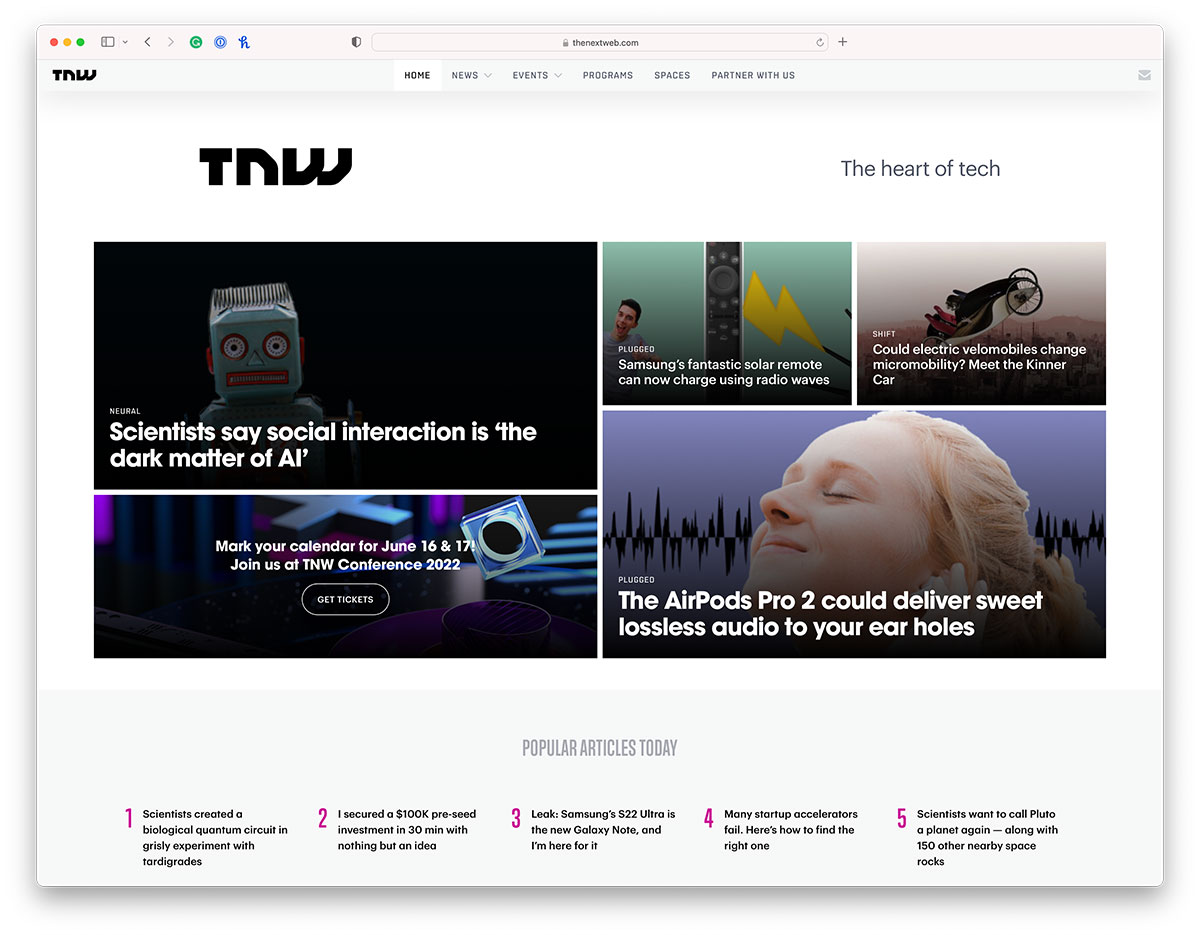What Does News Websites Mean?
Table of ContentsA Biased View of News WebsitesOur News Websites DiariesHow News Websites can Save You Time, Stress, and Money.Some Ideas on News Websites You Should KnowThe 6-Minute Rule for News Websites
It was down in the UK and Brazil yet up some various other nations, such as Greece, Bulgaria, and Poland (News Websites). This year, for the very first time, we inquired about the different ways that people avoid the news and found that around half of avoiders (53%) were trying to do so in a broad-brush or periodic means for instance, by switching off the radio when the information began, or by scrolling past the information in social media sitese.g. scrolling previous information, transforming networks when information comes on. of avoiders check sources less frequently. e.g. limit to certain times of day, shutting off alerts, etc. of avoiders stay clear of some subjects. e.g. topics that bring down mood or rise anxiousness. You claimed that you attempt to actively avoid information.

I'm possibly selecting to find out more light-hearted tales than I used to currently. M, 51, UK Switching my back on information is the only method I feel I can deal occasionally. I have to purposely make the initiative to avert for my own psychological health and wellness.
The Buzz on News Websites
Careful avoidance of Ukraine news was highest possible in a number of the nations closest to the conflict, strengthening searchings for from our additional survey in 2014, not long after the war had actually started. Our information might not recommend an absence of passion in Ukraine from nearby countries however instead a need to manage time or secure psychological wellness from the very genuine scaries of battle.
Contrasting Finland with a politically polarised nation such as the USA (see next chart) that is less impacted by the battle, we locate a really different pattern of topic avoidance. In the United States, we discover that customers are more probable to avoid subjects such as national politics and social justice, where disputes over problems such as sex, sexuality, and race have actually come to be very politicised.
American national politics are pretty toxic these days. I find often that I need to detach from tales that simply make me upset. F, 61, USA For some individuals, bitter and dissentious political disputes are a factor to transform off information entirely, view publisher site however for some political partisans, avoidance is typically regarding blocking out point of views you don't wish to hear.

Facts About News Websites Uncovered
Some are seeking to make news extra obtainable for hard-to-reach groups, widening the news schedule, commissioning even more inspiring or favorable news, or welcoming constructive or remedies journalism that provide individuals a sense of hope or individual agency. In our study this year, we asked respondents regarding their passion in these different strategies.
This discusses why tales like Ukraine or national politics do well with news regulars however can at the very same time turn much less interested customers away (News Websites). Careful avoiders are much less interested in all kinds of information than non-avoiders but in family member terms they do appear to be much more curious about positive or solutions-based information

The Ultimate Guide To News Websites
2023). This may hold true in the minute, however over time it appears to be leaving lots of people empty and much less pleased, which may be threatening our connection with and rely on the information. Across markets, overall count on news (40%) and trust in the resources people utilize themselves (46%) are down by an additionally 2 portion factors this year.
Through the rear-view mirror, the COVID-19 depend on bump is clearly noticeable in the following graph, though the direction of traveling afterwards has actually been blended. In some situations (e.g. Finland), the trust boost has actually been preserved, while in others the upturn looks even more like a blip in a tale of continued long-lasting decrease.
Some of the highest possible reported levels of media objection are located in countries with highest degree of wonder about, such as Greece, the Philippines, the United States, France, and the United Kingdom. The most affordable levels of media objection frequent those with higher degrees of trust, such as Finland, Norway, Denmark, and Japan.
The 25-Second Trick For News Websites
This year we asked respondents about their preferences for text, audio and video when consuming information online. Typically, we locate that the bulk still favor to review the information (57%), instead of watch (30%) or pay attention to it (13%), however younger people (under-35s) are more likely to pay attention (17%) than older teams.
Behind the standards we discover considerable and unexpected country differences. In markets with a solid analysis custom, such as Finland and the United Kingdom, around eight in 10 still favor to review on the internet news, but in India and Thailand, around 4 in 10 (40%) state they choose to watch information online, and in the Philippines that percentage is over half (52%).